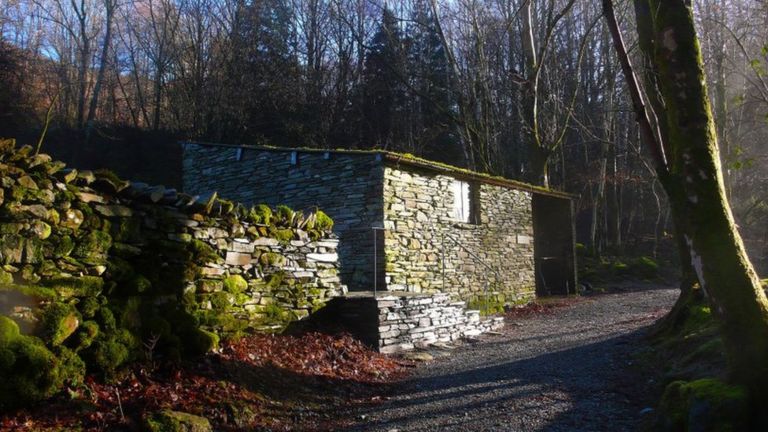Post by IggyWiggy on Jan 18, 2018 13:31:17 GMT

A Cumbrian barn that was the studio of one of the godfathers of modern art has been put up for sale, with a Chinese developer among the possible buyers.
Kurt Schwitters, who influenced artists like Damien Hirst, Antony Gormley and Sir Peter Blake, worked in the Merz Barn in Elterwater in the 1940s.
Its current owners have struggled for funding to maintain it.
But, contrary to other reports, the Chinese developer is not planning to move it to China.
Instead, they say they would be likely to create a studio for visiting artists, as well as a library and a cafe.
The potential buyer is a prominent developer who now works on global rural construction projects, but doesn't want to be named. A representative said he is carrying out a feasibility study.
Schwitters fled to the UK from Germany in 1937 after being branded a "degenerate artist" by the Nazis.
He's known for his collages and for his sculptural installations that filled entire rooms.
He wanted to transform the barn into a modernist grotto with zig zag walls and an angled false ceiling, but only completed one wall before dying in 1948.

In a sign of the barn's significance to British art, an exact replica was built in the courtyard of the Royal Academy of Arts in London for its Modern British Sculpture exhibition in 2011.
But that year, the Littoral Arts Trust, which owns the site, lost annual Arts Council England funding and has since had five further funding applications rejected.
Ian Hunter of Littoral Arts said he was "devastated" at the prospect of selling it.
"Our fear is that we'll be forced into selling it to a property developer," he said. "We feel that we've been pushed into this situation by the Arts Council."
The barn has been offered to Tate, the Museum of Modern Art in New York and the University of Cumbria, who all rejected it, he added.
He said he's had no option but to put it on the market to avoid bankruptcy, and has also put his house up for sale to "buy time".
He added that he's "perplexed" at why Arts Council chairman Sir Nicholas Serota said, in 2016, that Littoral Arts couldn't be expected to continue without public funding - but has since refused to support them.
A spokeswoman for the Arts Council said: "The Arts Council's role does not include the protection and restoration of cultural heritage - this is the responsibility of other bodies.
"However we have supported Littoral Arts with funding for a contemporary programme over a number of years."
Ian Hunter added: "We refute the Arts Council's statement that the Merz Barn is a heritage project solely, which contradicts entirely the funding that they have awarded the project in the past for capital and arts development programmes."
www.bbc.co.uk/news/entertainment-arts-42731022



